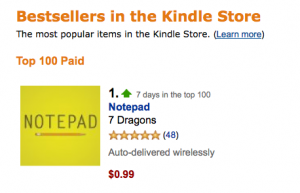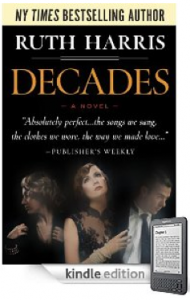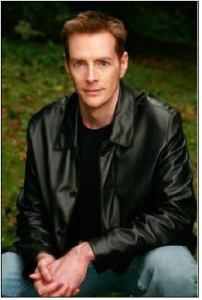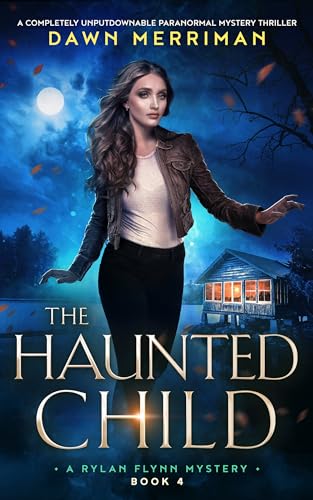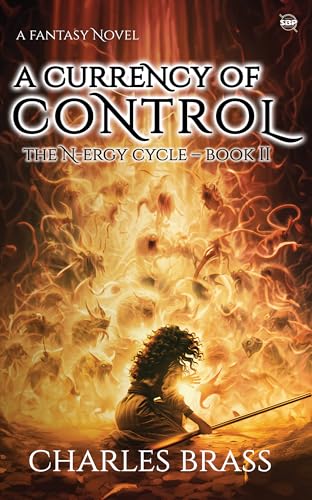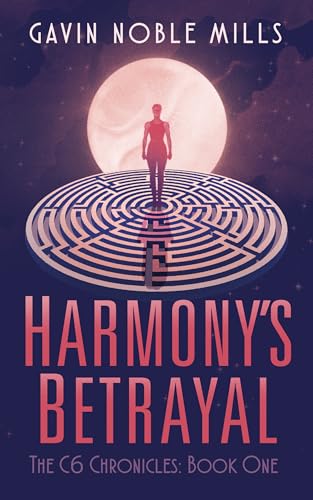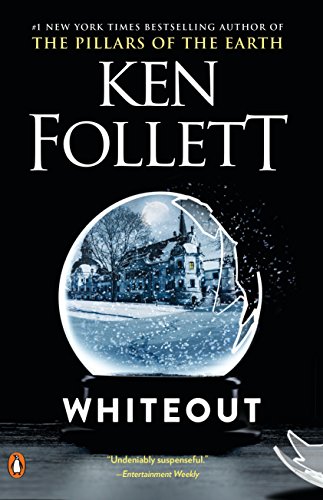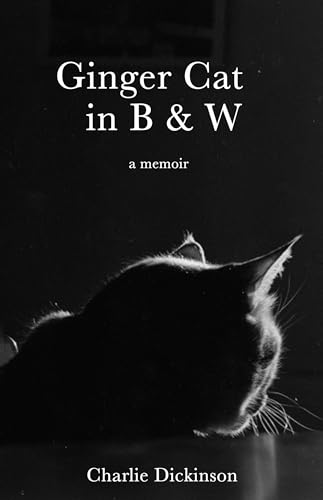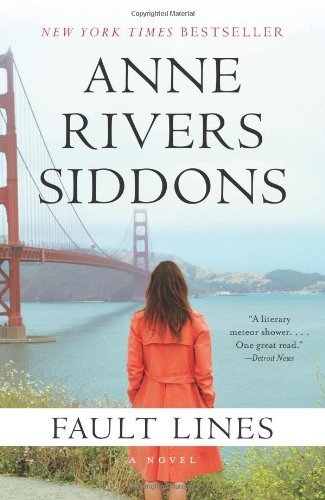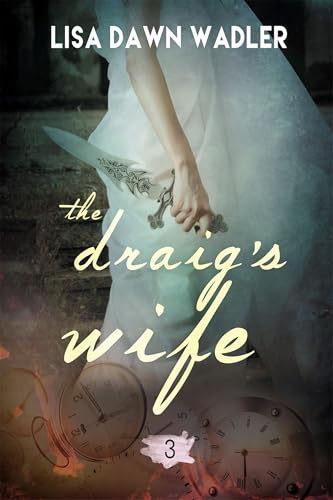One remarkable by-product of the Kindle Revolution during the past few months is the extent to which some Kindle authors are achieving a very new kind of indie rock star status as a result both of their ebook sales and of the fact that they have found various ways to build special followings and connections among readers, ways that are distinctly different from the kinds of connections that were available in the pre-Kindle world of publishing way back before 2008.
For those of us who are keenly interested in trying to understand where all of this leads, some of the blog posts by these wunderKindlers can make for extremely interesting reading. So, in addition to publishing a fascinating (and very long) post in its entirety here, I’m going to provide links to several other recent authors’ posts that have caught my eye recently because, I believe, they add something of value to the historical record of this revolution:
and, last but not least, and presented here in its entirety with Joe Konrath’s permission:
Originally posted at Joe Konrath’s A Newbie’s Guide to Publishing blog, March 19, 2011:
This is a live Google docs discussion. It examines the history and mechanics of the publishing industry as it exists today, analyzes the way the digital revolution reflects recent events in Egypt and the Maghreb, and considers a completely inappropriate YouTube video featuring a randy monkey and an unlucky frog. It clocks in at 13,000 words, and reveals some pretty startling things.
We encourage everyone reading the conversation to comment, and to tweet and otherwise link to it. You also have our permission to copy all or any part of it, provided you link back.
If you’d prefer to read this on your ereader, you can download various versions for free here. This zip file (you need WinZip to open it; a free trial is here) contains doc, pdf, epub, and mobi formats, so it can be uploaded to Kindles, Nooks, Sony Readers, Kobos, and pretty much any other device.
You can also go to Smashwords and get various formats for free, or to Amazon or B&N to get those formats for 99 cents (they wouldn’t allow us to post for free.) It’s also posted in full on Barry’s blog.
Our goal is to get this information out there, because it benefits authors and could theoretically make legacy publishers smarter. Please help us spread the word. Thanks.
And I almost forgot. This recent blog post of mine where I mentioned my anonymous friend? It was Barry.
Joe: To the casual observer, you appear to be heavily invested in the legacy publishing system. They’ve been good to you, they helped you get onto the NYT bestseller list, made you wealthy with several large deals, and seem to have treated you fairly.
Barry: Well, I don’t know about wealthy, but I’ve been making a living writing novels for almost a decade now, which is a pretty great way to live.
Joe: You had six-figure and seven-figure deals. Logic dictates anyone offered a deal like that should leap at it.
Barry: You wouldn’t.
Joe: But I never had the treatment you had from legacy publishers. I would walk away from a big deal now, most certainly, because I have two years of data proving I can do better on my own.
However, what if a NYT bestseller were offered, say, half a million dollars for two books?
Or, more specifically, let’s say you were offered that.
You’d take it. Right?
Barry: Well, I guess not… 😉
Joe: So… no BS… you were just offered half a mil, and you turned it down?
Barry: Yes.
Joe: Holy shit!
Barry: I know it’ll seem crazy to a lot of people, but based on what’s happening in the industry, and based on the kind of experience writers like you are having in self-publishing, I think I can do better in the long term on my own.
Joe: Holy shit!
Sorry. That needed to be said twice.
Barry: It’s okay, I like when you talk dirty.
We are living in remarkable times, aren’t we?
Joe: Indeed. “Barry Eisler Walks Away From $500,000 Deal to Self-Pub” is going to be one for the Twitter Hall of Fame.
Barry: Here’s something that happened about a year ago. Anecdotal, but still telling, I think. My wife and daughter and I were sitting around the dinner table, talking about what kind of contract I would do next, and with what publisher. And my then eleven-year-old daughter said, “Daddy, why don’t you just self-publish?”
And I thought, wow, no one would have said something like that even a year ago. I mean, it used to be that self-publishing was what you did if you couldn’t get a traditional deal. And if you were really, really lucky, maybe the self-published route would lead to a real contract with a real publisher.
But I realized from that one innocent comment from my daughter that the new generation was looking at self-publishing differently. And that the question–“Should I self-publish?”–was going to be asked by more and more authors going forward. And that, over time, more and more of them were going to be answering the question, “Yes.”
This is exactly what’s happening now. I’m not the first example, though I might be a noteworthy one because of the numbers I’m walking away from. But there will be others, more and more of them.
Joe: Over a year ago, you wrote a Huffington Post blog called Paper Earthworks, Digital Tides. You basically predicted that digital would become the preferred reading format…
Barry: You’re being kind to me–you predicted that switch way before I caught on to it. In that blog post, I was more building on what I’ve learned from you. But my general point was that digital was going to become more and more attractive relative to paper. First, because the price of digital readers would continue to drop while the functionality would continue to increase; second, because more and more titles would become available for digital download at the same time more brick and mortar stores were closing. In other words, everything about paper represented a static defense, while everything about digital represented a dynamic offense. Not hard to predict how a battle like that is going to end.
Apple sold 15 million iPads in 2010, and the iPad2 just went on sale. And Amazon sold eight million Kindle books in 2010–more digital books, in fact, than paperbacks. Meanwhile, Borders is shuttering 224 stores. So I think it’s safe to say the trends I just mentioned are continuing. And the trends reinforce each other: the Borders in your neighborhood closes, so you try a low-priced digital reader, and you love the lower cost of digital books, the immediate delivery, the adjustable font, etc… and you never go back to paper. The reverse isn’t happening: people aren’t leaving digital for paper. There’s a ratchet effect in favor of digital.
Joe: In the history of technology, when people begin to embrace the new media tech, it winds up dominating the marketplace. CDs over vinyl and tapes, DVD over VHS. The Internet over newspapers. Even Priceline over travel agents–
Barry: Yes! Sorry to interrupt, but this is something that interests me so much. I can’t tell you how many people I’ve heard saying, “But paper isn’t going to disappear.” That isn’t the point! If you ask the wrong question, the right answer to that question isn’t going to help you. So the question isn’t, “Will paper disappear?” Of course it won’t, but that’s not what matters. What matters is that paper is being marginalized. Did firearms eliminate the bow and arrow? No–some enthusiasts still hunt with a bow. Did the automobile eliminate the horse and buggy? No–I can still get a buggy ride around Central Park if I want.
Now, some new technologies really have completely displaced their forebears. For example, there’s no such thing as eight-track tape anymore. And yet some people still do listen to their music on vinyl, despite the advent of mp3 technology. The question, then, is what advantages does the previous technology retain over the new technology? If the answer is “none,” then the previous technology will become extinct, like eight-track. If the answer is “some,” then the question is, how big a market will the old technology continue to command based on those advantages?
Joe: You’re talking about niche markets.
Barry: Exactly.
Joe: We’ve discussed this before. Paper won’t disappear, but that’s not the point. The point is, paper will become a niche while digital will become the norm.
Barry: Agreed. Lots of people, and I’m one of them, love the way a book feels. I used to like the way books smelled, too, before publishers started using cheap paper. And you can see books on your shelf, etc… those are real advantages, but they’re only niche advantages. Think candles vs electric lights. There are still people making a living today selling candles, and that’s because there’s nothing like candlelight–but what matters is that the advent of the electric light changed the candle business into a niche. Originally, candlemakers were in the lighting business; today, they’re in the candlelight business. The latter is tiny by comparison to the former. Similarly, today publishers are in the book business; tomorrow, they’ll be in the paper book business. The difference is the difference between a mass market and a niche.
Joe: I also love print books. I have 5000 of them. But print is just a delivery system. It gets a story from the writer to the reader. For centuries, publishers controlled this system, because they did the printing, and they were plugged into distribution. But with retailers like Amazon, B&N, and Smashwords, the story can get to the reader in a faster, cheaper way.
And publishers aren’t needed.
Do you think publishers are aware of that?
Barry: I think they’re extremely aware of it, but they don’t understand what it really means.
Joe: I believe they’ve gotten their business model mixed-up. They should be connecting readers with the written word. Instead, they’re insisting on selling paper.
Barry: Yes. There’s a saying about the railroads: they thought they were in the railroad business, when in fact they were in the transportation business. So when the interstate highway system was built and trucking became an alternative, they were hit hard.
Likewise, publishers have naturally conflated the specifics of their business model with the generalities of the industry they’re in. As you say, they’re not in the business of delivering books by paper–they’re in the business of delivering books. And if someone can do the latter faster and cheaper than they can, they’re in trouble.
Joe: You say they’re aware of it, and some evidence points to that being true. The agency model is an attempt to slow the transition from paper to digital. Windowing titles is another one. So are insanely high ebook prices.
Barry: All signs that publishers are aware of the potential for digital disintermediation, but that they don’t understand what it really means.
Joe: Because they still believe they’re essential to the process.
Barry: I would phrase it a little differently. They recognize they’re becoming non-essential, and are trying to keep themselves essential–but are going about it in the wrong way.
Joe: You and I and our peers are essential. We’re the writers. We provide the content that is printed and distributed.
For hundreds of years, writers couldn’t reach readers without publishers. We needed them.
Now, suddenly, we don’t. But publishers don’t seem to be taking this Very Important Fact into account.
Barry: Well, again, I think they’re taking it into account, but they’re drawing the wrong conclusions. The wrong conclusion is: I’m in the paper business, paper keeps me essential, therefore I must do all I can to retard the transition from paper to digital. The right conclusion would be: digital offers huge cost, time-to-market, and other advantages over paper. How can I leverage those advantages to make my business even stronger?
Joe: We figured out that the 25% royalty on ebooks they offer is actually 14.9% to the writer after everyone gets their cut. 14.9% on a price the publisher sets.
Barry: Gracious of you to say “we.” You’re the first one to point out that a 25% royalty on the net revenue produced by an ebook equals 17.5% of the retail price after Amazon takes its 30% cut, and 14.9% after the agent takes 15% of the 17.5%.
Joe: Yeah, that 25% figure you see in contracts is really misleading. Amazing, when you consider that there’s virtually no cost to creating ebooks–no cost for paper, no shipping charges, no warehousing. No cut for Ingram or Baker & Taylor. Yet they’re keeping 52.5% of the list price and offering only 17.5% to the author. It’s not fair and it’s not sustainable.
Barry: I think what’s happening is that publishers know paper is dying while digital is exploding, and they’re trying to use the lock they’ve always had on paper to milk more out of digital. In other words, tie an author into a deal that offers traditional paper royalties, which are shrinking, while giving the publisher a huge slice of digital royalties, which are growing. The problem, from the publisher’s perspective, is that their paper lock is broken now.
Joe: I feel all writers need to be made aware that there is finally an option. Not just an option, but an actual preferable alternative to signing away your rights.
Barry: It’s inevitable that more writers will be realizing this is true. It’s being demonstrated by more and more self-published authors: you, Amanda Hocking, Scott Nicholson, Michael J. Sullivan, HP Mallory, Victorine Lieske, BV Larson, Terri Reid, LJ Sellers, John Locke, Blake Crouch, Lee Goldberg, Aaron Patterson, Jon F. Merz, Selena Kitt, hopefully me… 🙂
Joe: You’re on track to make $30,000 this year on a self-published short story. I’m not aware of any short story markets that pay that well.
Barry: Well, it’s early yet, but yes, The Lost Coast has done amazingly well in its first few weeks, netting me about $1000 after the initial fixed cost of $600 for having the cover designed and having the manuscript formatted. I plan to continue to publish short stories and I’ll be getting the new John Rain novel, The Detachment, up in time for Father’s Day, and I have a feeling that each of the various products will reinforce sales of the others.
Joe: That’s a really smart plan. My own sales, and the sales of other indie authors doing well, pretty much confirm that a rising tide lifts all boats. Virtual shelf space functions a lot like physical shelf space. The more books you have on the shelf, the likelier you are to be discovered by someone browsing. And when a browser reads you and likes you, she buys more of your work, and often tells others about it.
In other words; the more stories and novels you have available, the more you’ll sell.
Barry: Gotta just jump in here to point out the significance of this. It means that a writer’s best promoting tool is once again her writing. Advertising costs money. New stories make money.
Joe: I told you so…
Barry: You did. Glad I listened late rather than never. It’s amazing: for most of the history of publishing, outside a brief book tour and maybe a few public appearances throughout the year, a writer couldn’t do much to promote. Then the Internet happened, and writers had to do a tremendous amount of online promotion–blogs, social networking, chat rooms–to be competitive. Now, with digital books, once again there’s no more profitable use of an author’s time than writing. Not to say that authors don’t need to have a strong online presence; of course they do. But anytime you’re thinking about some other promotional activity–a blog post, a trip to a convention, an hour on Facebook–you have to measure the value of that time against the value of writing and publishing a new story. The new story earns money, both for itself and your other works. The social networking stuff doesn’t.
Joe: Yes. But it’s even more than that. Because there are two major difference between virtual shelves and physical shelves.
First, a virtual shelf is infinite. In a bookstore, they have a limited amount of space. Often, my books are crammed spine out, in section–and I’m lucky if they have a copy of each that are in print. Many times they only have a few, and sometimes none at all. But a virtual shelf, like Amazon or Smashwords, carries all my titles, all the time. And I don’t have to compete with a NYT bestseller who has 400 copies of their latest hit on the shelf, while I only have one copy of mine. We each take up one virtual space per title.
Second, virtual shelf life is forever. In a bookstore, you have anywhere form a few weeks to a few months to sell your title, and then it gets returned. This is a big waste of money, and no incentive at all for the bookseller to move the book.
But ebooks are forever. Once they’re live, they will sell for decades. Someday, long after I’m gone, my grandchildren will be getting my royalties.
Currently, my novel The List is the #15 bestseller on all of Amazon. I wrote that book 12 years ago, and it was rejected by every major NY publisher. I self-published it on Amazon two years ago, and it has sold over 35,000 copies.
Barry: That is insane. Aside from some major external event–a big movie release, something like that–it’s almost unheard of for a backlist paper book to suddenly become a bestseller. Yet that’s exactly what just happened to The List.
Joe: Because I dropped the price.
Barry: Well shit, legacy publishers use dynamic pricing to move books all the time.
Joe: Sorry, I just spewed beer all over my monitor.
Barry: I apologize.
Joe: No problem. But right, with digital you have the option to put an ebook on sale. I originally self-published The List in April of 2009. It went on to sell 25,000 ebooks at $2.99. Now, two years later, I lowered the price, and it’s selling 1500 copies a day. Things like that don’t happen in paper. But in self-publishing, I’m seeing more and more books take their sweet time finding an audience, then take off.
Forever is a long time to earn royalties. So it makes sense for forever to begin today, not tomorrow.
If you had taken the deal for The Detachment, when would it have been published?
Barry: This was one of the reasons I just couldn’t go back to working with a legacy publisher. The book is nearly done, but it wouldn’t have been made available until Spring of 2012. I can publish it myself a year earlier. That’s a whole year of actual sales I would have had to give up.
Joe: We can make 70% by self-publishing. And we can set our own price. I have reams of data that show how ebooks under $5 vastly outsell those priced higher.
Barry: This is a critical point. There’s a huge data set proving that digital books are a price-sensitive market, and that maximum revenues are achieved at a price point between $.99 and $4.99. So the question is: why aren’t publishers pricing digital books to maximize digital profits?
Joe: Because they’re protecting their paper sales.
Barry: Exactly.
Joe: It’s awfully dangerous for an industry to ignore (or even blatantly antagonize) their customers in order to protect self-interest.
Barry: Not that it hasn’t been tried before. Just never successfully outside a monopoly. And the advent of digital has broken the monopoly publishers used to have on distribution.
Joe: In the meantime, I’m selling 3000 ebooks a day by pricing reasonably. There aren’t too many Big 6 authors selling that well. And I’m getting much better royalties than they are.
So what’s going on with legacy publishers? It seems like either willful ignorance or outright stupidity. They’re irritating their customers, alienating their content providers, and refusing to embrace the future.
Why?
Barry: I think there are a lot of things going on, some emotional, some institutional. Clayton Christensen wrote about a lot of this in a book called The Innovator’s Dilemma. Fundamentally, it’s extremely hard for an industry to start cannibalizing current profits for future gains. So the music companies, for example, failed to create an online digital store, instead fighting digital with lawsuits, until Apple–a computer company!–became the world’s biggest music retailer.
Joe: Simon and Schuster or Random House should have invented the ereader. They should have been selling ebooks from their websites a decade ago. Instead, an online bookseller, Amazon, is leading the revolution.
Barry: Exactly. The same outcome as in the music business. It’s one thing for a single media company to make these mistakes–but one after the other? What’s that Oscar Wilde line? “To lose one parent may be regarded as a misfortune; to lose both looks like carelessness.”
Joe: Or, as your character Dox would say, “This isn’t really about hunting, is it…”
Barry: That Dox has a way with words.
Joe: Those who don’t study history are doomed to repeat it. I also think the Upton Sinclair quote is appropriate: “It is difficult to get a man to understand something, when his salary depends upon his not understanding it.” Denial is a powerful opiate.
We both dig quotations too much.
Barry: And I think it was Nelson Mandela who said, “Where you stand depends upon where you sit.” We’re probably all victims of those kinds of pressures, to one extent or another. But you have to try to be as aware as possible of the dynamic. If you’re not, you could lose a lot of money.
Joe: You might also lose your content providers. If you’re selling eggs, don’t piss off your chickens.
Barry: It’s not just the chickens. It’s the people who buy the eggs, too.
Joe: The readers. And the libraries. HarperCollins just announced they are putting a limit on ebook loans in libraries. After twenty-six check-outs, the library has to buy a new copy.
Talk about biting the hand that feeds…
Barry: Yes. The problem is twofold. First, by giving authors only 17.5% of the growth end of the business while keeping 52.5% for themselves, publishers are going to lose authors. Second, by attempting to retard the growth of digital–holding back digital releases until paper is ready, charging paper prices for digital books–publishers are thwarting their customers. Take a step back and consider it, and it’s hard not to see that this strategy is badly flawed. A business grows by giving customers what they want, not by insisting that customers take what the business wants them to have. It grows by cultivating its wholesale providers, not by alienating them with precentages so unfair that it motivates them to develop their own retail channels.
Joe: It reminds me of the golden age of television. You had three choices, ABC, NBC, or CBS. They dictated what you would watch.
But that model no longer works for TV. Now there are hundreds of channels. And it no longer works for books, either. If you look at the current Top 100 bestsellers on Kindle, twenty-seven of them are self-published. Many of those authors were rejected by NY. Yet consumers are showing us what they want to read, and voting with their wallets.
The “gatekeeper” model, where agents and Big 6 Publishers decided what would be fit for public consumption, is eroding. YouTube has proven that viewers are okay with having unlimited choices, and happy to surf to find things that interest them.
Barry: Yes! I mean, which of the networks would have broadcast that monkey raping a helpless bullfrog?
Joe: It wasn’t rape. It was consensual.
Barry: I don’t know. I don’t think the frog was conscious. I’m not sure it was even alive.
Joe: I–
Barry: After the first five minutes, I mean.
Joe: I’m married. I see this all the time. The frog was conscious. Just not very active.
Barry: Yes, but he couldn’t speak.
Joe: So the frog croaked?
Barry: Aaaargh!
I still think about that frog. I feel sorry for him. What happened… it just couldn’t have been in the lexicon of normal frog fears. Maybe he was worried the monkey would eat him. But then… he’s thinking, “Dude, don’t do this! You’re a monkey, I’m a frog, it’s not right, it’s against nature, it’s mmmmmmmpppphhhhh.”
Joe: It’s not easy being green.
How many people do you think followed that link and then, out of mistrust, never returned to our scintillating conversation?
Barry: Yeah, but the ones who returned will be our readers for life.
Joe: We’re probably going to cut this entire section later.
Barry: A tear just rolled silently down my cheek.
Joe: You’re twelve years old. I swear.
Barry: On my good days, yes.
I do want to go on the record at this point as saying that no frogs have ever been harmed in the production of my books.
Joe: But gay bashers are rightfully fair game.
Barry: Ask my character Larison, in The Lost Coast, about that… 🙂
Joe: So is this a revolution? Are writers and readers fed up with legacy publishing? And won’t their opinions, and their options, hasten the Big 6’s demise?
Barry: No question: there’s a revolution going on here. In fact, there are parallels between what we’re seeing in the publishing industry and what you see in social revolutions–the kinds with pitchforks and torches.
Joe: You need to elaborate on that. We once had an interesting conversation about kings and peasants which could apply…
Barry: I remember that conversation. That was the one with the mescalin, right?
Joe: No. That was the one when you confessed your secret love for me. This one was about royalty and peasants.
Barry: Oh, right… right. Part of what’s going on in the industry now is that publishers are resisting the way technology is empowering writers. I’m sure some publishers will read this and disagree with it, but that’s because they’re genuinely unaware of the resistance.
Joe: Again, are they truly unaware? Or purposely ignoring it?
Barry: I’m not sure, but in the end it probably doesn’t matter. For a long time, publishers’ lock on distribution has given them enormous leverage in the industry, a leverage they’ve come to view as the natural, desirable order of things. Legacy publishers are part of an establishment, and if you’re part of the establishment, you’re of course going to like and support the establishment, and to resist any attempts to change or circumvent it. It’s just human nature.
Joe: They think they’re royalty, that they’re entitled to certain assurances. And we’re peasants, who need to listen to what our lords and masters tell us. Naturally, a peasant uprising is unthinkable.
Barry: I’d tweak this just a little. In America, the concept of royalty as such isn’t popular, so no matter how many royal perks and prerogatives Americans might have, the people in question wouldn’t want to think of themselves as royalty.
But that said, certainly there’s a mentality in publishing about who has the power as between publishers and authors generally. There are exceptions–I doubt Stephen King’s publisher thinks it has the upper hand in that relationship–but overall, publishers look at authors as needing publishers more than publishers need authors.
Joe: That’s changed. And they don’t seem to realize it.
Barry: Right. Before the digital revolution, there was some basis for this viewpoint. But today it’s antiquated, and publishers are starting to need authors more than authors need publishers. If for generations you’ve been the lord of the land worked by your peasants, and you suddenly find yourself needing the peasants more than they need you, if you find them making new demands you don’t have the negotiating leverage to resist, you’ll probably find yourself resentful because damn it, this just isn’t the way God ordered the universe!
Joe: And despite all this, legacy publishers don’t realize a revolution is afoot.
Barry: I think they’re aware of it, but in an abstract way. I talk to a lot of people in the business, and when most of them talk about digital and the changes it’s causing in the industry, you can tell they’re imagining a future that’s safely abstract and far off. Something you acknowledge in conversation, of course–you’re not in denial, after all–but that fundamentally still feels to you like theory. Because you’re still having your Tuesday morning editorial meetings, right? And you just launched a new title that made the NYT list, right? And signed that hot new author, right? Sure, there are rumblings in the provinces, but here at court in Versailles, the food is still delicious and the courtiers still accord deference appropriate to your rank. When you live in the palace at Versailles, the rumblings in the provinces always sound far away. Right up until the peasants are dragging you out of your bed in the middle of the night and setting fire to your throne.
Joe: Sounds like Egypt.
Barry: It is Egypt. You think Mubarak had any idea of what he was facing at any time before he was being escorted from the palace? At one point, he actually believed that offering to fire his cabinet was going to appease protesters. And at some point, publishers will believe that offering authors 25% or 30% of digital retail instead of 17.5% will put down the rebellion. In fact, this is probably their current backup, hail-Mary, worst-case plan. But it’s already too late.
The royalty/peasant mentality is pervasive, largely invisible to the people who are part of it, and manifests itself in a lot of contexts. Look what happened when I published my blog post, The Ministry of Truth.
Joe: The one about your NPR essay?
Barry: Right, my essay examining Orwell’s Nineteen-Eighty-Four as a thriller, which I wrote at NPR’s invitation. The blog post examined the way NPR edited the essay, and how NPR’s edits revealed that fundamentally, NPR is an establishment media player.
Joe: Your editor was pissed.
Barry: He was. NPR called up Random House and complained about my blog post. And my editor then dutifully complained to me. At first, I didn’t understand the complaints at all. I said, “Why don’t they complain in the comments section of my blog? You know, the box where it says, ‘Leave Your Comment.’ Why not engage my argument? Why are they complaining to you in private?”
Joe: Because they didn’t want to imply you were an equal.
Barry: Bingo. Their attitude was, “If we argue in public with this unwashed blogger, by implication it puts the blogger on the same footing as NPR.” So instead, they called another establishment player, Random House, to settle it all privately. “Straighten out this peasant, won’t you? He’s making us all look bad.”
The weird thing was how much sense the whole thing made to my editor and how little it made to me. I mean, it’s not like I took a dump all over NPR; I just pointed out that they’re an establishment media player playing by establishment media rules. An entirely legitimate and worthwhile argument. But they weren’t concerned about the merits of the argument; they were concerned that the argument was being raised at all, and by someone without the appropriate status to raise it. I just didn’t get it. I asked my editor what, is there some lese majeste law protecting NPR from respectful public criticism? It’s bizarre, how delicate establishment egos can be, how frightened they are of criticism from the wrong quarters.
Joe: Peasants aren’t allowed to criticize the royalty.
Barry: Yes. People don’t understand what this means. They see Fox fighting with CNN, Democrats fighting with Republicans, and they think they see real competition, competition that matters. But the old clans of Europe fought each other, too–they fought viciously. But you know what would bring them together as one?
Joe: A peasant uprising.
Barry: Yes. If a peasant spoke up, if a peasant suggested by word or deed that there was something fundamentally illegitimate about the very system within which the clans fought each other for spoils, that the system should be open to everyone–in the face of that, the clans would unite against the threat to the system itself. The clans hated each other, but they would work together to support the overall system.
Joe: Two beers and you’re already getting political.
Barry: You should hear me after two coffees. It’s worse. Anyway, “competition” between the major New York houses and other establishment players works the same way.
Joe: Other establishment players like the New York Times Bestseller List. Which, according to my calculations, I should have been on…
Barry: Yes, what the New York Times has been doing is a perfect example of the royalty/peasant mindset at work.
Joe: Let’s set the Wayback Machine to 2009, when ebook sales began to really pick up speed. The NYT had ample opportunity to include them on their prestigious list.
Barry: Yes. Now, the natural, sensible, path-of-least resistance kind of thing would have been to include digital sales from the beginning, right?
Joe: Absolutely. Especially for a periodical that is considered the gold standard when it comes to reporting the news. It’s a “bestseller” list, after all.
Barry: At least that’s what it purports to be. So why didn’t the Times include digital sales from the outset? Or at least from some point after digital sales became more than a niche. Why did they wait until Amazon was selling more digital books than paperbacks?
Joe: Perhaps reporting the truth was somehow not aligned with what the NYT perceives as its interests.
Barry: Please don’t get me started on the Times’ cowardly insistence on calling waterboarding torture only when it’s done by other countries, and “harsh interrogation techniques” when it’s done by Americans. That’s their official policy, by the way.
Joe: I noticed you managed to sneak that sound bite into the Freakonomics movie. Which, incidentally, you never even told me you appeared in…
Barry: I still can’t believe I forgot to tell you that. But yes, I think it’s important that in a variety of critical ways the “newspaper of record” sees itself as the government’s partner and spokesperson, and believes that role is natural and desirable.
Joe: In the case of the bestseller list, I would assume that advertising dollars play a part. I’m a self-pubbed author. I don’t buy full page ads in the Times for big bucks.
Barry: Surely this is no more than coincidence!
Joe: But even if we set aside the money, the Times has ample motive for not putting indie authors on their bestseller list. Newspapers, like Big 6 publishers, are remnants of the analog age. Printing and shipping paper is an antiquated form of distributing media. These companies are trying to stay relevant in a digital future, and aren’t doing so well at it. Certainly the fact that I can sell more books than most bestselling Big 6 authors shows how ineffective the Big 6 are. So publishers, both newspaper and book, have an aligned interest in keeping digital at bay. Keeping it out of the public eye is one way to forestall things.
Barry: Right. Look, if the Times bestseller list were really just about sales–you know, if it were really just about the books that were “selling” the “best”–than you and a lot of other indie authors would be on it, because your numbers inarguably put you there. But the Times won’t allow it. What we can infer from the Times’ behavior, therefore, is that what they call a “bestseller” list is in fact a “those bestselling books we believe have been properly vetted and blessed by trusted establishment players with whom we see our interests as aligned” list.
Joe: That’s a mouthful.
Barry: Sometimes the truth takes a little more explaining than the soundbite. Which is why governments, and Madison Avenue, like soundbites better. On the other hand, it’s a pretty simple soundbite to ask, “Why are so many bestselling books not being included on a bestseller list?”
Joe: Because including digital would accelerate the transition from analog. And paper pushers don’t want that.
Barry: Right. And there’s more. What happened when digital sales became so big that even the Times recognized it was beginning to look undeniably foolish and antediluvian in pretending digital didn’t exist?
Joe: They said, “All right, we’ll include digital. But not by indie authors.”
Barry: Yes. Apparently, bestselling indie authors aren’t “real” bestsellers. Some sales are more equal than others.
Joe: Maybe I’ll get lucky and the Times will publish a separate bestseller list for indie ebooks. “Separate but equal” is fair, right?
Barry: I almost wish they would. It would be pretty funny to see how many more books the indie bestsellers were selling than the legacy bestsellers.
Joe: It would be kind of like the old Negro Baseball League. The white establishment segregated them, and the Negro league wound up having the best players. Eventually, the establishment had no choice but to combine them.
Barry: It’s always interesting to watch the gyrations and contortions someone has to engage in when he takes an illogical and otherwise untenable position, a position he knows he can’t explain honestly and openly. Listen to the Times’ editor, Bill Keller, try to explain his position on the word “torture” and you might almost begin to feel sorry for him.
Joe: The Times, like the Big 6, are gatekeepers. But the gatekeepers aren’t the only parties interested in keeping the status quo.
There are so many writers now defending the Big 6 that I liken their behavior to Stockholm Syndrome. As artists, we’ve become so used to the idea of breaking into the publishing industry by appeasing the gatekeepers that we’ve begun to revere them. We defend their decisions–even the wrng ones–because we’ve deemed them essential to the process. They’re the powerful purveyors of wisdom who nod at worthy intellectual properties and welcome their creators into the fold.
Barry: If you can add one more “P” word to “Powerful Purveyors,” you’ll have a hit on your hand. You know, like “Nattering Nabobs of Negativism.”
Joe: Powerful Purveyors of Preference.
Barry: I like it. One for the ages.
Joe: So when confronted with how unfair the gatekeeping system is compared to self-pubbing, some authors get angry and insist that the Big 6 must know better, and have our best interests at heart.
Barry: I’ve seen this from time to time in the comments section of your blog and also in the comments at Jane Litte’s excellent Dear Author. I think of it as a peasant mentality, but absolutely, Stockholm Syndrome is a perfect reference.
Joe: The thing is, the notion that the gatekeepers know better is demonstrably untrue. While I’ve had good relationships wit industry pros, they always boiled down to one thing: money. There’s nothing wrong or dirty about that. Business is business. But as the artist, we have a lot more at stake in this business.
Barry: We have more skin in the game. A publisher can have hundreds of authors, but I’ll only be able to write so many books in my lifetime. They can afford to have a few fail. I can’t.
I want to digress here for a moment to show how in the current system this hidden asymmetry can work to the author’s detriment. You know how legacy publishers are now agreeing to what are called “lookback” provisions on digital royalties?
Joe: You mean the clauses that says, three years after publication, the two parties will renegotiate the digital royalty?
Barry: Yes. The clause then provides, “And if the parties can’t agree on a new royalty, the publisher will stop selling digital copies of the title in question.” Sounds like an equitable solution, right?
Joe: Not to me. But I see why it’ll fool some people.
Barry: It fools a lot of people. They think, “Well, that seems fair… if we can’t agree on a new royalty, no one can sell the book until we do agree.” Equally applicable to both sides. But as a percentage of the publisher’s corporate earnings, that one version of one title is barely a rounding error. As a percentage of the author’s earnings, it’s massive. If there’s a freeze, who’s going to squeal first?
Joe: People need to understand this. I need my books to make money, or else I can’t make a living. A publisher needs books, but not any specific book.
Barry: A critical concept that applies to burglaries, too. A burglar doesn’t want to rob your house; he wants to rob a house. When you understand this, you can take appropriate defensive measures.
Joe: Okay, back to your decision. Without–
Barry: Did I digress?
Joe: You never digress.
Barry: You’re being kind.
Joe: Without revealing who offered you half a million dollars, how did they handle your reaction?
There have been other authors who have turned down deals. Though hearsay and rumor continue to trumpet otherwise, I passed up legacy offers for Shaken, Endurance, and Trapped, and I pulled a second book in a two book deal with Berkley because I couldn’t get them to understand that low prices and no DRM sells many more books, even though I have a lot of evidence that shows I’m right.
But I didn’t give up half a mil…
Barry: Every time you say that you make me feel like a lunatic!
Joe: You might be, but not in regard to this situation. Obviously, I’m 100% on your side on this one. I’m on track to make half a mil in the next ten months. I know how lucrative self-publishing has become.
But I’m an outlier, remember? An anomaly. (Me and the dozens other writers who are doing the same.)
Barry: Here’s another quote, this one from Gandhi: “First they ignore you, then they laugh at you, then they fight you, then you win.”
As a news junkie, it’s been fascinating for me to watch the way the publishing establishment has tried to marginalize you. First by ignoring you, and then, when ignoring you become impossible, by trying to position you as some sort of shrill, bitter, fringe player with nothing more than an axe to grind. The way legacy publishing has tried to de-position you is perfectly analogous to what The New York Times and other establishment media players have tried to do with Wikileaks.
I can’t tell you how many otherwise smart and reasonably well-informed publishing people have said to me, “Well, yes, but Konrath was rejected by all the NY houses” (about the same number as the otherwise smart and reasonably well-informed people who’ve said to me, “Yes, but Wikileaks indiscriminately released a quarter million top-secret cables and has blood on its hands”). I tell them that’s untrue, that in fact your legacy books have earned out and that you had offers on various others which in the end you decided not to take. And I ask them, “What do eople say when they’ve been fired? ‘I quit.’ What do they say when their girlfriend breaks up with them? ‘I dumped her, man.’ Maybe they even believe it, too, but that doesn’t make it so.
And then they say, ‘Well, all right, but Konrath is a marketing genius.’
Joe: That part’s true.
Barry: It is true, but it isn’t the point. Their trying to argue that you have to be a marketing genius to succeed in self-publishing, and that therefore no one else but you can do it. This is just demonstrably not the case. A talent for marketing is going to help you in any business endeavor, but there are too many people making money now in self-publishing for an outbreak of genius to be the explanation.
And then the next argument (contradicting the first one, by the way), is, “Konrath only succeeded in self-publishing because he had a legacy deal first.” And then I point to your various blog posts where you show how much money is being made by self-published writers who have never had legacy deals.
Joe: I think I contradicted the “legacy deal first” argument pretty well here.
Barry: You demolished it. The final argument I’ve been hearing–and it really will be the final argument, because after this, “then you win”–is that, “Okay, some people are making money in self-publishing, but it’s always the same names.”
But that list of names keeps getting longer. The critics are going to be reduced to saying, ‘Okay, some people are making money in self-publishing, but it’s always the same five thousand names.’
The critics will be self-publishing themselves before then.
Joe: I was in love with the publishing industry. It was my dream to land a Big 6 deal. And I still believe the industry is filled with intelligent, talented, motivated, exceptional people. I’m grateful to have sold as many books as I did (and continue to do.)
My switch to self-publishing isn’t personal. It’s just business. I can make more money on my own.
Also, I see publishers doing a lot that’s wrong. Things we’ve just discussed. It isn’t a good idea for most authors to sign a legacy deal anymore.
You, however, are a NYT bestseller. This is important, you passing on a deal like this. It says something I haven’t been able to say, and shows something I haven’t been able to show.
Barry: Some people are reading this and saying, “Yeah, it shows that he is demented!”
Joe: Nah, that they already suspected. Actually, I’d qualify it as a tipping point. When big name authors start turning down major deals, the tides are truly turning.
Barry: I think it’s fair to say it’s probably a kind of milestone. There will be many more, some we won’t even be aware of except in retrospect, but yes, when authors start turning down half-million dollar book deals because they think they’ll do better in the long run on their own, it’s hard to argue “Nothing to see here, folks, just keep moving…”
Joe: I’ve said it to you in person, and I’ll repeat it here. You have got some gigantic balls.
Barry: I don’t know if it’s that so much. It’s more that I’ve spent a lot of time in this industry and a lot of time studying it. I’ve also spent time in other industries, and in the government, and there are certain dynamics at work in the publishing world that feel familiar to me. Plus I read your blog and I track the results of your experiments. You’ve created a lot of data that’s providing a kind of roadmap through new and confusing terrain. Anyway, add all that up and it leads me to the conclusion that I’d be better off on my own. Doing the right thing isn’t the hard part, I think; it’s knowing what the right thing is in the first place. You’ve made that easier.
Joe: Dude, they’re like two pumpkins in a sack. Your balls are massive. Other men fear your balls.
Now would be a fun time to reveal that I made up all of my numbers, and am only making $7 a week on ebooks.
Barry: Heh. Remember, if Amazon is playing with your numbers, they’re probably inflating them just to tempt other authors to take the plunge, create a self-fulfilling prophecy, and hasten the transition to digital.
Joe: We discussed that recently. How can we be sure Amazon, or any of the other etailers, are being honest in their accounting?
Barry: We can’t. But–
Joe: But how can we be sure the Big 6 are honest in their accounting? Especially with reserves against returns and inflated print run figures?
Barry: Exactly. What’s so interesting about this species of question is that it always ignores the same risk as it exists in a more familiar context. For example, “How do you know you’ll be able to market your books effectively by yourself?” As though working with a legacy publisher automatically means you’re going to be marketed effectively.
Joe: My fave is, “So what if Amazon reduces the royalty rate from 70% once they dominate the market?”
Barry: Yes, that’s the classic. I mean, they might even reduce it to 14.9%! And God, a 14.9% digital royalty would just suck.
Oh, wait…
Joe: LMAO.
Barry: One more related point. I know some people are going to be reading this and thinking, “Okay, but how will I ever cut through all that digital clutter? How will I ever get noticed without a publisher?”
Joe: How did anyone ever get noticed with a publisher?
Barry: Exactly. Walk into a bookstore–even with today’s diminished inventory, there are tens of thousands of titles. How do you get noticed? Getting noticed and other aspects of marketing is a challenge in any business, digital, paper, or otherwise. It’s too big a topic to cover here, but for now, let’s just say that it’s hardly a unique challenge for digital books. And, as you and many others have demonstrated, it’s hardly an insurmountable challenge, either.
Joe: I’d argue that marketing a digital book is actually easier. But we can come back to that. I want to ask, can you reveal who made the offer?
Barry: I don’t think it’s a secret that the publisher was St. Martin’s Press. And my demurral had nothing to do with SMP specifically–in fact, I think they’re terrific people, and if I’d worked with them earlier in my career, I would have been much better off. Also, I had comparable offers from other publishers and thought the SMP people were the smartest and most impressive of the bunch. So my decision had nothing to do with SMP in particular, and everything to do with pervasive industry dynamics as I see them. To put it another way, from everything I’ve heard and seen, I think SMP would be an exceptionally strong publisher. But like all publishers, they’re currently caught in a digital riptide and don’t have a good way through it.
Joe: So, were they shocked?
Barry: Well, certainly surprised and disappointed. And we tried to work out something a little different than what had originally been proposed, but in the end I just couldn’t convince myself not to go it alone.
Joe: How about your agent? What was his reaction?
Barry: Again, surprised and disappointed. But it’s led to a lot of terrific conversations about where the industry is going, and how agents will be changing their business models accordingly.
Joe: Did your wife want to strangle you?
Barry: If she did, it wouldn’t be anything new. But she’s amazing… totally understands how I think and feel about all this and is completely supportive.
Joe: Also, if you don’t do well on this, I’ll be the one she strangles.
Barry: She’s told me exactly that.
Joe: What was the ultimate basis for your decision? Did it come down to pure dollars and cents?
Barry: Financial considerations were a big part of it, yes. You and I have discussed various models to understand what a publisher’s advance represents: a loan, an insurance policy, a bet. On the loan model, the first place I heard the concept articulated was in an extremely ballsy and persuasive blog post by Terrill Lee Lankford.
Joe: I like that analogy. I also believe signing with a big publisher is like signing a life insurance policy, where the payments keep getting larger while the payoff gets smaller as time goes on.
Barry: Yes. Now, of course there are numbers where the loan, the insurance, or the bet would make sense. If the loan is so big that you don’t think you’d ever be able to make that much on your own, plus you won’t have to pay it back, then sure, take it. If the insurance payout is so big that it eclipses the event it’s supposed to protect against, okay. And if you find a publisher willing to put down so much money upfront that you feel they must be stoned because no one could ever earn that much back, then by all means, take the bet.
But short of that, you have to wonder if the person you’re betting against isn’t yourself.
Anyway, yes, much of this was financial. A lot of people don’t realize–and I probably wouldn’t have realized myself if you hadn’t pointed it out–that the appropriate measure for determining how much your books can earn you in digital is forever. In paper, with rare exceptions, there’s a big upfront sales push, followed by either total evaporation or by years of low backlist sales. Digital isn’t like that.
Joe: Time is the ultimate long tail. Even with a big wad of money upfront, if something sells forever, the back end is what ultimately counts.
Barry: Right. So if you think you’re going to die on Tuesday, for sure take the advance on Monday. If you think you’re going to stick around for a while, though, and you have resources to draw on such that you don’t need that expensive loan, don’t take it. You’ll be better off without.
Joe: Or to put it another way, getting half a million bucks and 14.9% royalties, forever, isn’t as lucrative as no money up front and 70% royalties, forever.
Barry: Yes. Especially because you first have to earn out the half million at 14.9% per book. That could take a while. After which, as you note, you’re still only earning 14.9% rather than 70%. You need to move five times the volume at 14.9%.
Joe: But currently, you’re a paper bestseller.
Barry: Yes, which maybe makes my experience instructive. My books are probably pretty good examples of reasonable success in paper. The first two, Rain Fall and Hard Rain, are in something like their 15th printings eight and nine years on. So that’s good. But I’m still only earning pennies on each copy sold. And my publisher of those books, Putnam, is still trying to charge $6.99 and $7.99 for digital copies, which is demonstrably too high if your goal is to maximize revenue (as opposed to, say, trying to shore up an eroding paper ecosystem).
I’m getting close to earning out on some of those books, which would be another sign of success–but even after I’ve earned out, I’ll still be making only pennies because of low paper royalties and because 14.9% multiplied by sluggish digital sales caused by too-high prices doesn’t make me much money.
I should add here that I don’t begrudge Putnam–they have the rights and they can use them however they like, however mistaken I think they are in their digital pricing model. The point is that I would be making far more money from the books if I held the digital rights myself. At the time, holding the rights myself wasn’t an option. Today it is, and I don’t want to be kicking myself eight years from now when The Detachment would be making me only pennies through a legacy publisher when it could have been making me a mint through the rights I refused to sell cheap.
Joe: Time also has to be an issue for you. Not just having to wait a year to publish The Detachment, but the time it takes to promote it.
A few years ago, there was some idiot who did signings at over 500 bookstores during a summer. He wound up visiting 40 states and over 1200 bookstores.
Barry: I heard about that guy. Funny-looking dude.
Joe: Hah. But there was another idiot who came pretty close to that record, who personally visited over 800 bookstores in the last few years.
Barry: Heh. People who live in glass houses…
Joe: And I may be the only other person on the planet who knows the amount of time and effort that took. Time that you could have spent writing…
Barry: Based on what I knew at the time, it seemed like the right thing to do. Plus I’ve always wanted to see Montana.
Joe: I’m sure you saw that and more, driving those thousands of miles. But it was the right thing to do. We’re both still in print, aren’t we? How many of our peers who were published at the same time aren’t?
Barry: That’s a good point. Books were selling through bookstores, and I looked at booksellers as my frontline sales force. So I wanted to do all I could do develop a closer relationship with that sales force and help them sell books. Not an unworthy objective, even today, but what it fails to take into account is the opportunity cost involved. When you’re driving (or whatever), you’re not writing, and again the highest profit margin activity an author can engage in is writing. In retrospect, I realize this has always been true, but it’s more true now that ever due to the numbers of units you can sell in digital, because of the tendency of a new digital customer to vacuum up an author’s entire low-price, high-margin oeuvre in one purchase.
Joe: So this decision should allow you to be more prolific. Because, dayam, a book a year is really fricking slow…
Barry: I think you’ll see me writing a bit more in my new self-published capacity. And not just because I’m motivated. It’s also because, contrary to conventional wisdom, in my experience publishers don’t actually save you much time on the marketing front. Dealing with a legacy publisher can be quite time-consuming, and aggravating, too. Of course, publishers might say the same about authors! But that doesn’t change the fact that publishers can take up a lot of your time.
Joe: Dealing with bureaucrats, large companies, or committees, is always a time suck. Lots of effort, little result.
Barry: If you think about it, for years publishers have been steadily outsourcing their core business functions. Culling the slush pile went to agents long ago. A lot of editorial devolved to agents, too. Marketing has increasingly become the responsibility of writers, who are expected to blog and be social media demons. I think publishers felt comfortable outsourcing all these functions because they felt the lock they had on their core function–distribution–made their overall position impregnable.
The problem is, they’ve lost that lock, and they’ve already outsourced so many of their other functions that it’s getting hard for them to offer a writer a coherent value proposition. For now, they have enough cash to offer advances, which most authors will need to live for the same reason most people need a mortgage to buy a house. But even that advantage is being eroded by digital, because with digital, you publish right away and start earning right away.
It’s funny, what are the two most common, even pervasive, writer complaints about legacy publishers? First, that publishers don’t know how to market and expect writers to do a tremendous amount of their own marketing.
